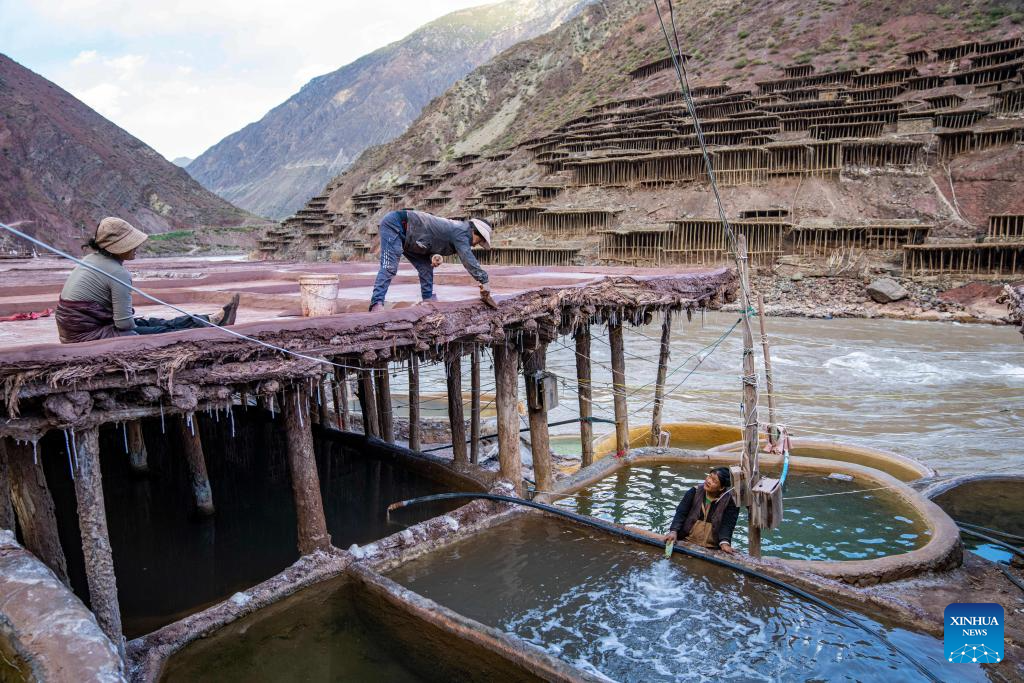
Villagers work at a salt field in Naxi Ethnic Township of Markam County in the city of Qamdo, southwest China's Tibet Autonomous Region, Oct. 20, 2023.
Markam County is known as a place with rich salt resources since ancient China. Salt fields are mainly built on cliff slopes and riversides of the Lancang River. Local people in Naxi evaporate brine in the sun with an ancestral technique since Tang Dynasty (618-907 AD).
With a large amount of yearly output of salt products, salt-production has become a main income for local people. Furthermore, the salt fields here and local folk customs also become a unique attraction to visitors. (Xinhua/Sun Fei)
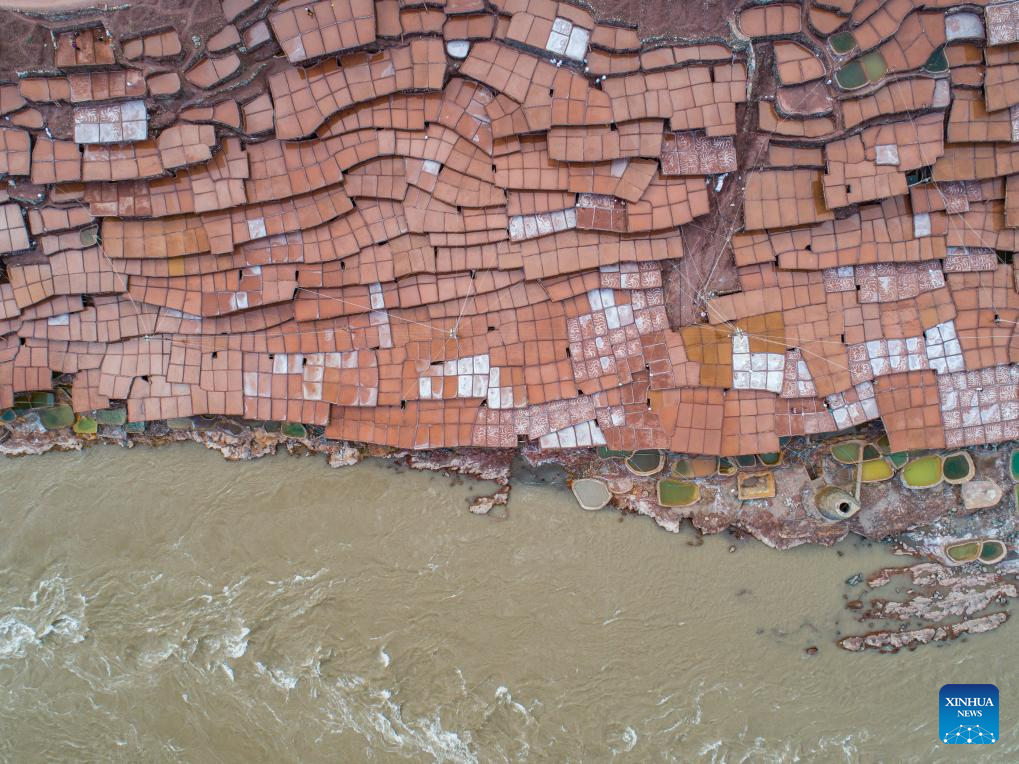
This aerial photo taken on Oct. 20, 2023 shows salt fields in Naxi Ethnic Township of Markam County in the city of Qamdo, southwest China's Tibet Autonomous Region. (Xinhua/Sun Fei)
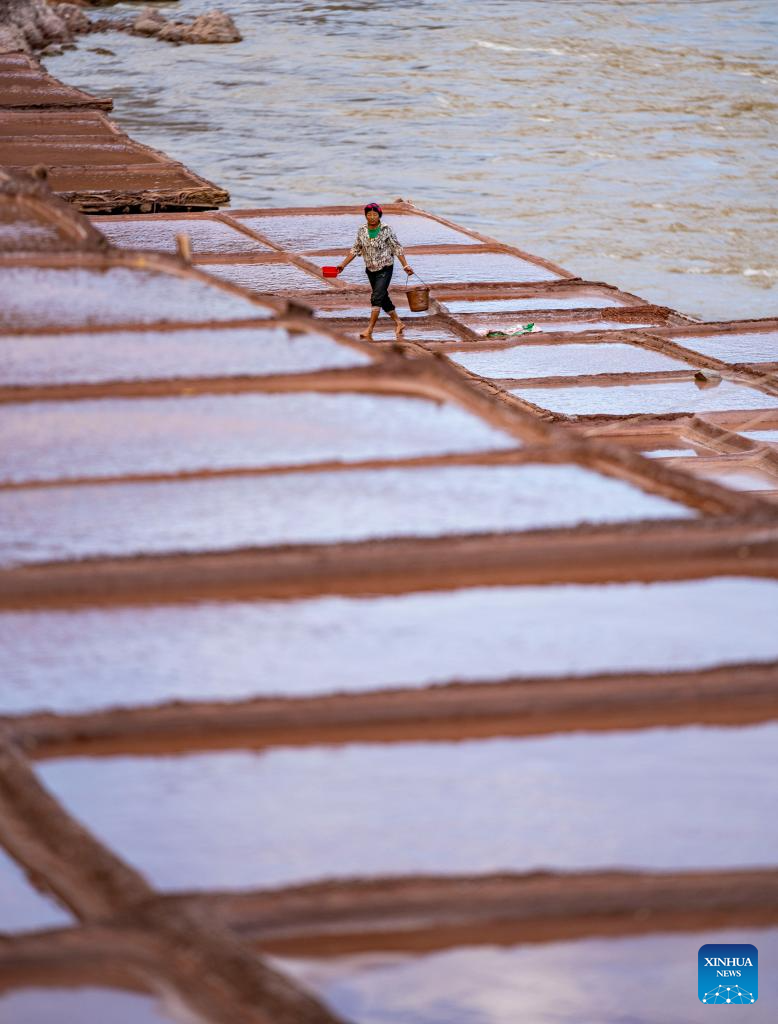
A villager works at a salt field in Naxi Ethnic Township of Markam County in the city of Qamdo, southwest China's Tibet Autonomous Region, Oct. 20, 2023.(Xinhua/Sun Fei)
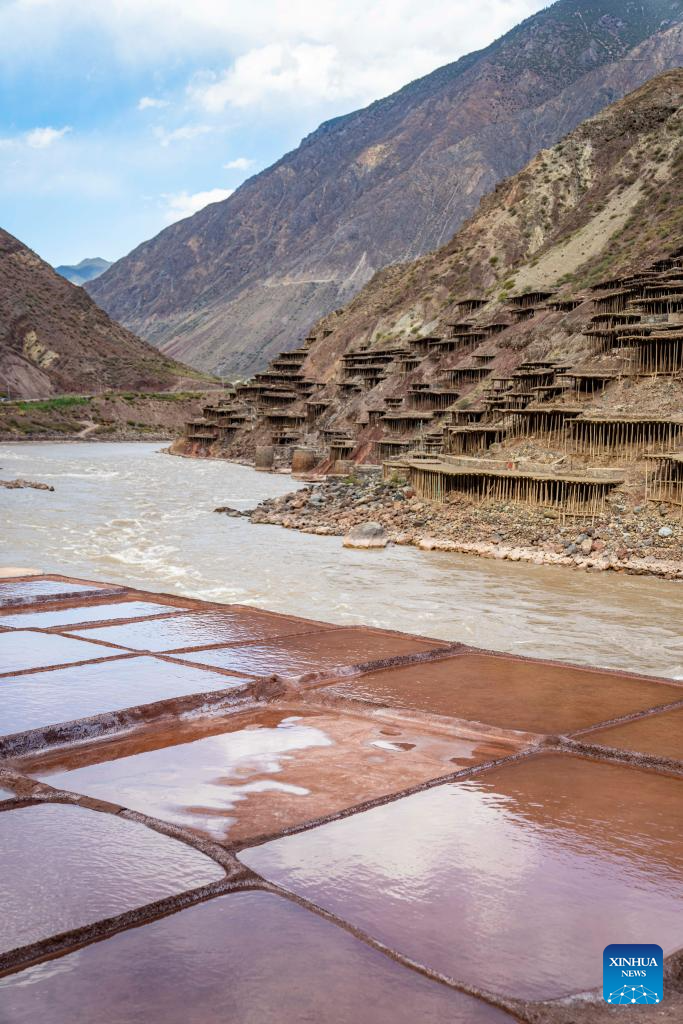
This photo taken on Oct. 20, 2023 shows salt fields in Naxi Ethnic Township of Markam County in the city of Qamdo, southwest China's Tibet Autonomous Region.(Xinhua/Sun Fei)
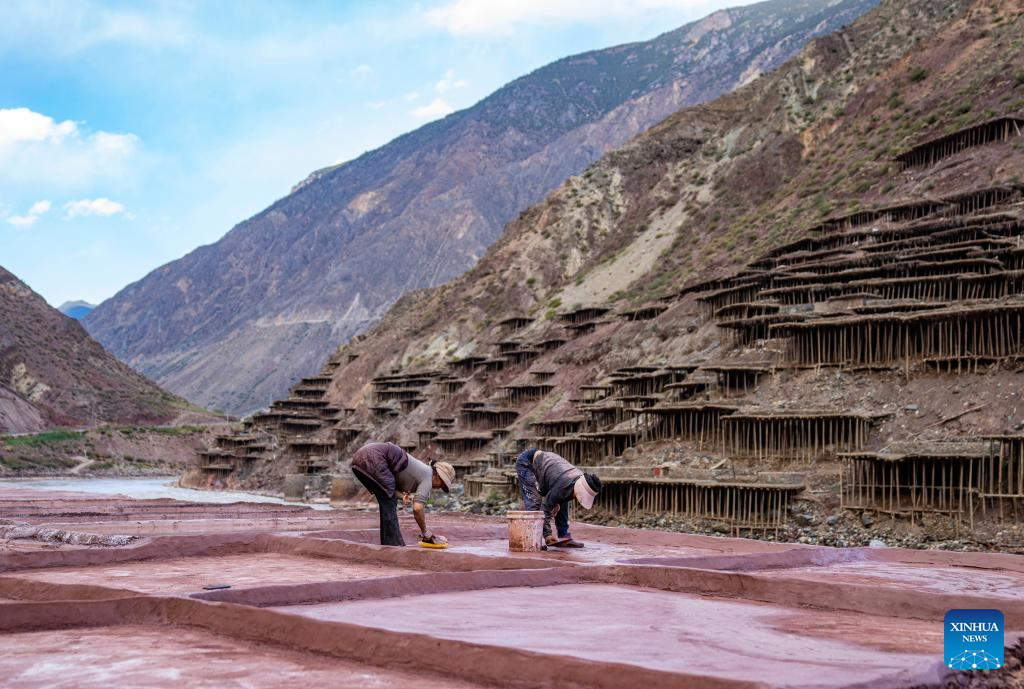
Villagers work at a salt field in Naxi Ethnic Township of Markam County in the city of Qamdo, southwest China's Tibet Autonomous Region, Oct. 20, 2023. (Xinhua/Sun Fei)
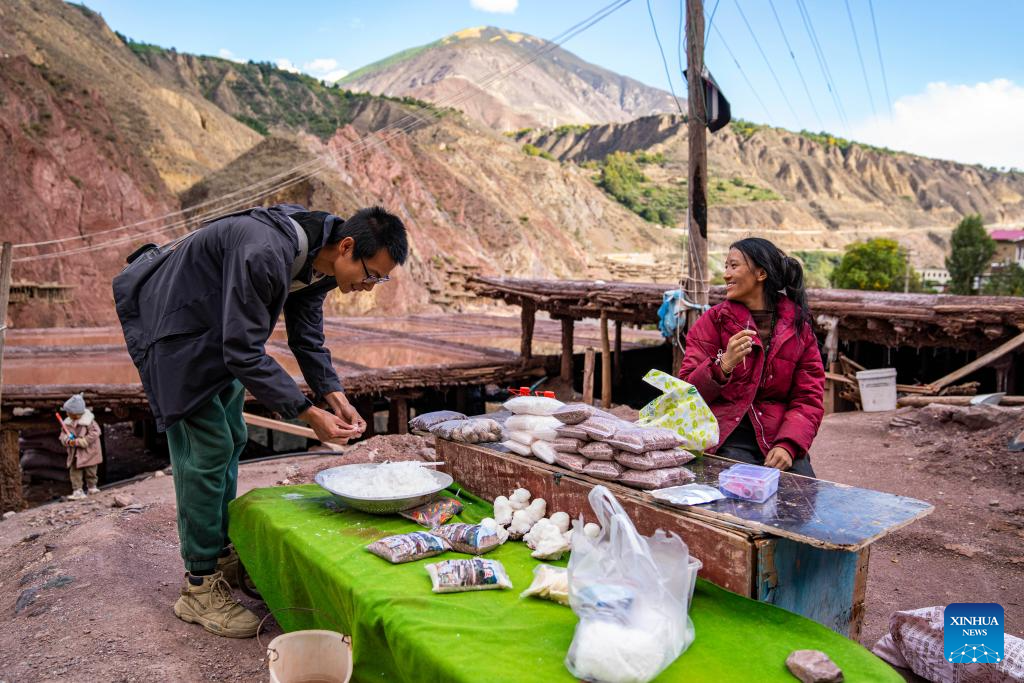
A villager promotes salt produced by her family to a tourist near a salt field in Naxi Ethnic Township of Markam County in the city of Qamdo, southwest China's Tibet Autonomous Region, Oct. 20, 2023. (Xinhua/Sun Fei)
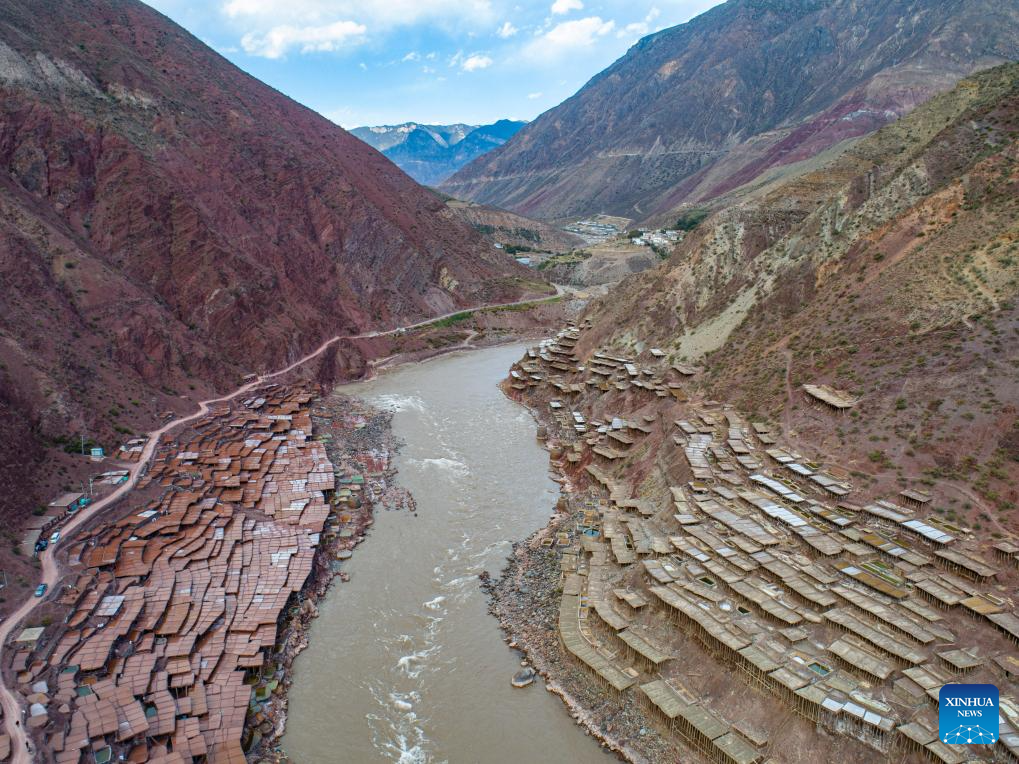
This aerial photo taken on Oct. 20, 2023 shows salt fields in Naxi Ethnic Township of Markam County in the city of Qamdo, southwest China's Tibet Autonomous Region.(Xinhua/Sun Fei)



